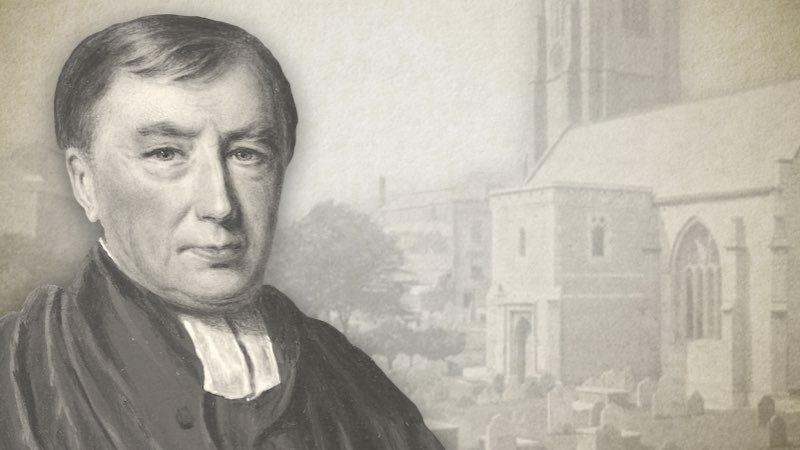
July 15—Morning Devotion
“Rivers of waters run down mine eyes, because they keep not thy law.”—Psalm 119:136
Who is there of whom this may be said? Jesus, and Jesus only. He wept indeed over his beloved Jerusalem, for he was a man of sorrows and acquainted with grief. And the love he had to his redeemed, induced a bloody sweat through all the pores of his sacred body. But of every other may it not be said, “All seek their own, not the things which are Jesus Christ’s.” Did we truly love Zion, would not rivers of tears run down at the present languishing state of Zion? Did we feel the full sense of distinguishing grace, would not every heart mourn over the ruins of our common nature? Think, my soul, what a mass of sin ascends as a cloud before the view of the Lord every day from a single heart of the desperately wicked transgressor? Think what an accumulation in a town, a province, an empire, the world! Might not rivers of waters run down at the contemplation? And worse, if possible! Think of that higher source of sorrow, in that the only possible remedy for this evil is slighted, and Christ, which is God’s one gracious ordinance for the recovery of our ruined nature, is so little esteemed among men. Oh how might the people of God be supposed to have their very souls melted in the contemplation! This, this is indeed the condemnation; this is the soul- destroying sin; “that light is come into the world, and men love darkness rather than light, because their deeds are evil.” Oh for grace to mourn over a Christ-despising generation! Oh for the “Deliverer to arise out of Zion, and turn away ungodliness from Jacob.”
Robert Hawker (1753-1827) was an Anglican (High-Calvinist) preacher who served as Vicar of Charles Church, Plymouth. John Hazelton wrote of him:
“The prominent features…in Robert Hawker's testimony…was the Person of Christ….Dr. Hawker delighted to speak of his Lord as "My most glorious Christ.” What anxious heart but finds at times in the perusal of the doctor's writings a measure of relief, a softening, and a mellowing? an almost imperceptible yet secret and constraining power in leading out of self and off from the misery and bondage of the flesh into a contemplation of the Person and preciousness of Christ as "the chiefest among ten thousand and the altogether lovely." Christ and Him crucified was emphatically the burden of his song and the keynote of his ministry. He preached his last sermon in Charles Church on March 18th, 1827, and on April 6th he died, after being six years curate and forty-three years vicar of the parish. On the last day of his life he repeated a part of Ephesians 1, from the 6th to the 12th verses, and as he proceeded he enlarged on the verses, but dwelt more fully on these words: "To the praise of His glory Who first trusted in Christ." He paused and asked, "Who first trusted in Christ?" And then made this answer: "It was God the Father Who first trusted in Christ."
Robert Hawker on the Biblical Covenants (Complete)
Robert Hawker's Poor Man's Morning Portions




